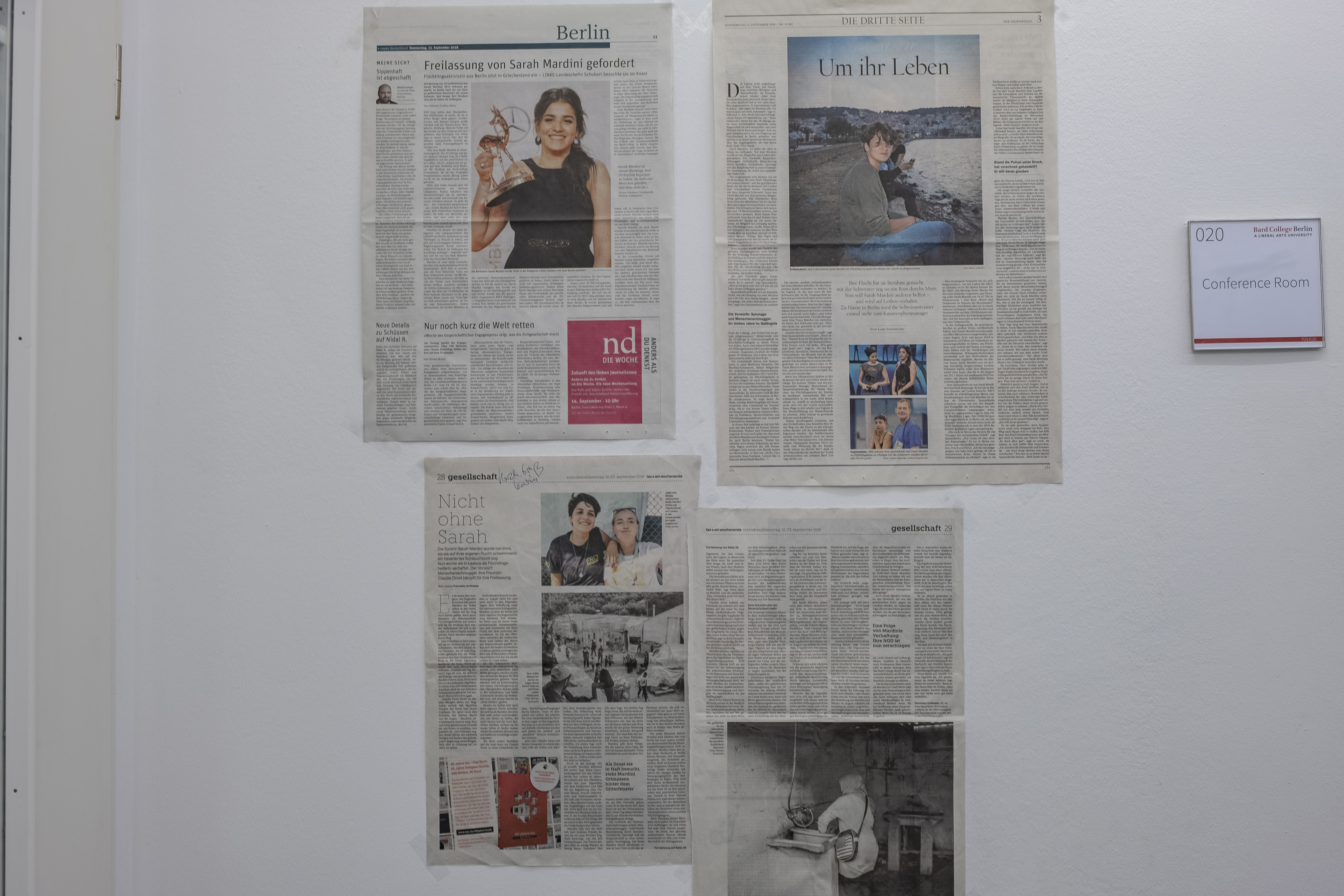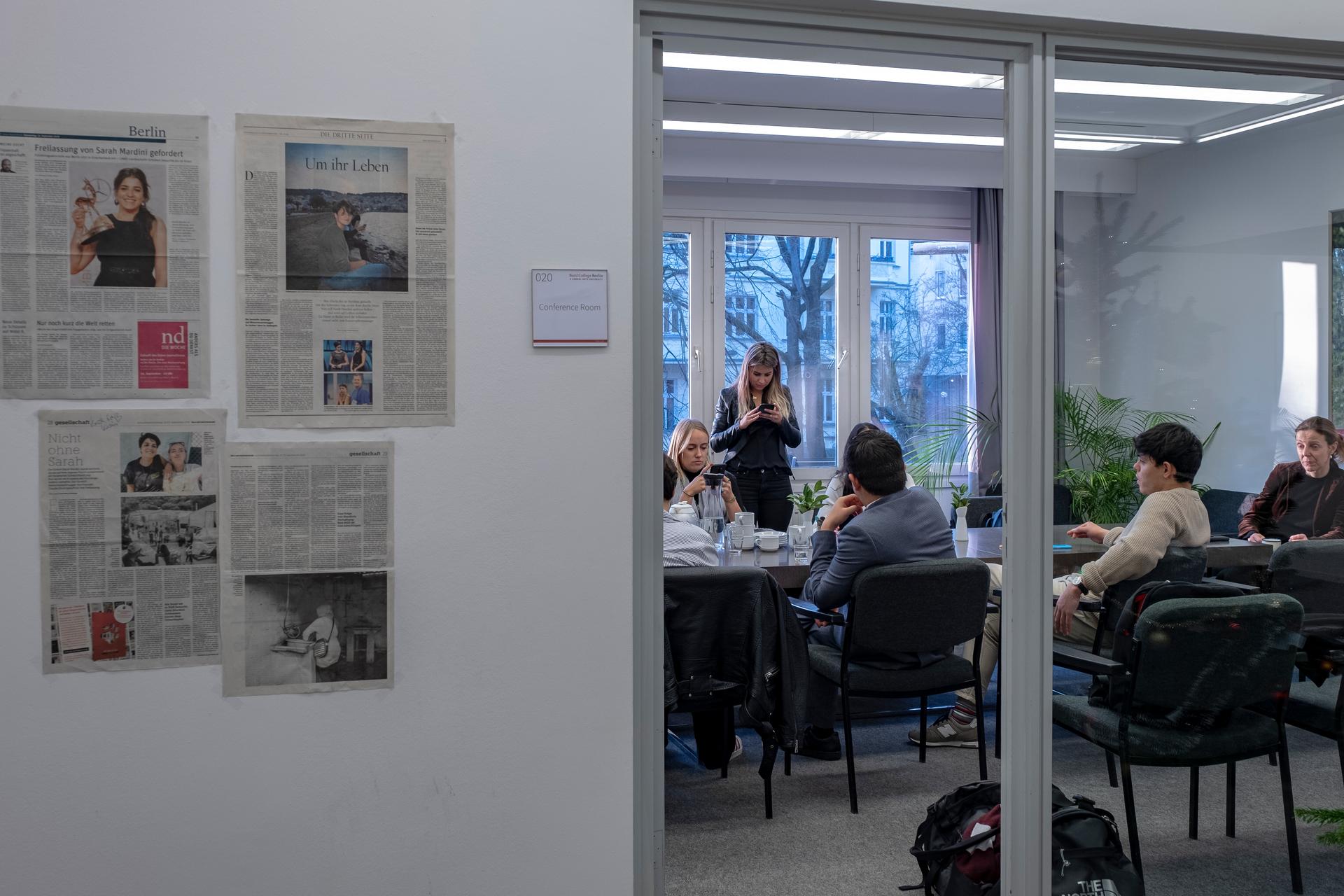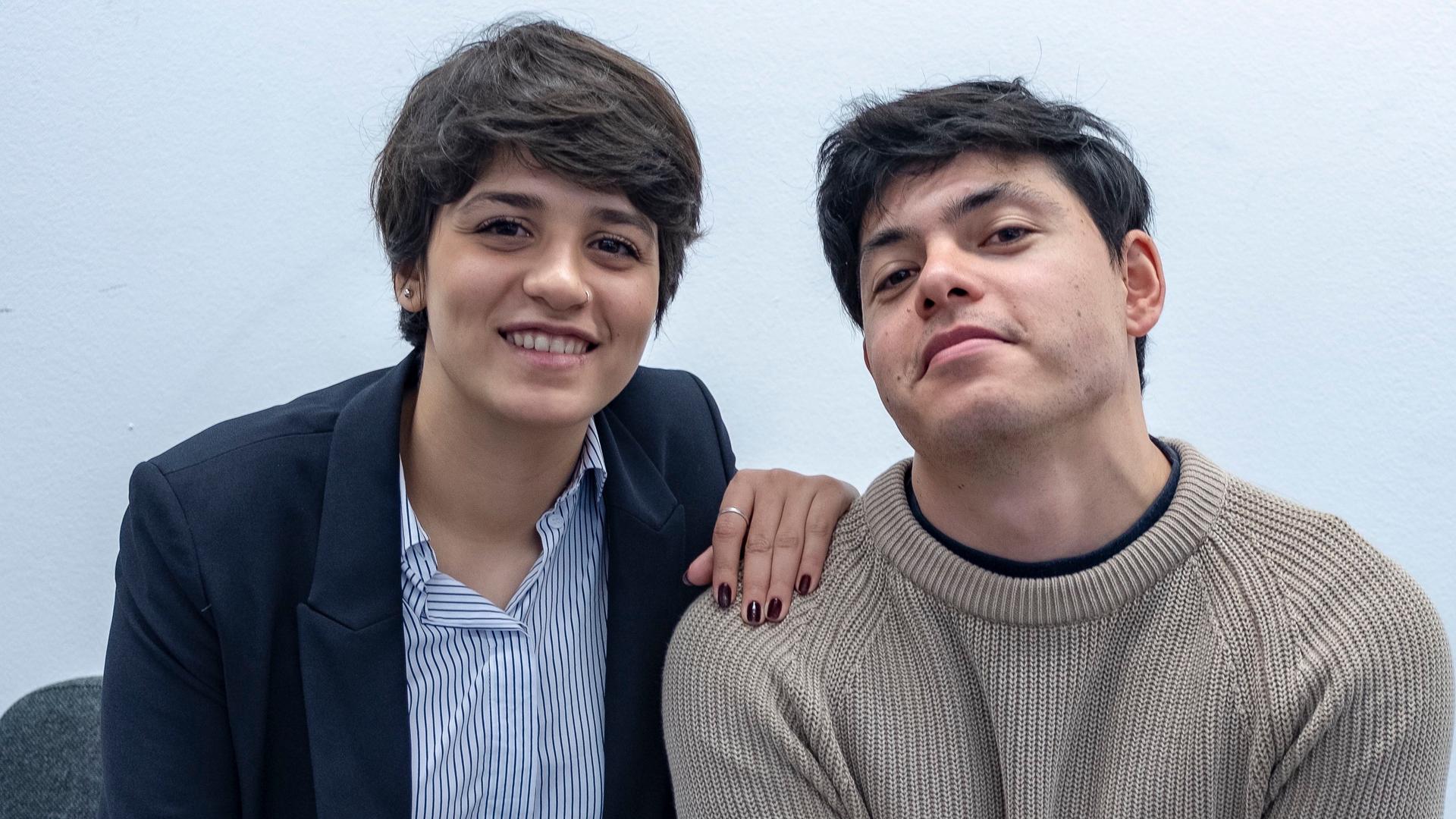Syrian refugee ‘hero swimmer’ Sara Mardini is out of prison. She plans to keep helping refugees.
Sara Mardini and Sean Binder, both volunteers with a Greek nongovernmental organization that helps refugees reach safety, were released from prison in December 2018 on bail. Greek authorities had accused them of people smuggling, espionage, money laundering and participation in a criminal organization. Mardini and Binder are waiting to find out whether their case will proceed to trial.
Last week, Sara Mardini, known as one of the Syrian refugee sister “hero swimmers” for her rescue efforts on a migrant boat in 2015, was released on bail after being imprisoned on the outskirts of Athens, Greece, for 106 days.
Sara Mardini, a volunteer with ERCI, a Greek nongovernmental organization that helps refugees reach safety, was arrested on Aug. 21 along with its founder and head, Panos Moraitis, and volunteers Sean Binder and Nassos Karakitsos on charges of people smuggling, money laundering, espionage and participation in a criminal organization. They were released last week with bail set at $5,652 (5,000 euros) for each of them.
Sara Mardini and her colleagues now await a decision by the judicial council about whether or not there will be a trial and what the charges will be. In a press conference in Berlin on Wednesday, their lawyer, Zacharias Kessos, refuted the charges as “false accusations that don’t follow the law.”
Kessos is optimistic that even if the case does go to trial, the volunteers won’t be convicted.
“I handle many such cases in Greece — real criminal teams, real, big cases with smugglers and criminal organizations,” he said. “What they tried to present here as a case or a criminal [organization] or a smuggling network is totally silly.”
Sara Mardini, who is well-known in the humanitarian world, and Binder, were caught off guard by the turn of events.
“I can’t believe that doing what we did was wrong,” Binder said during the press conference at Bard College Berlin, where Sara Mardini is a student. “What is wrong with pulling people who are drowning out of the water; what is wrong with helping people who are hypothermic, or women who are pregnant or kids who just want to be children? There’s nothing wrong with that in my opinion, so, yes, it was very surprising.”
In 2015, Sara Mardini and her younger sister, Yusra Mardini, 19, made international headlines for different reasons. During their perilous journey on a flimsy rubber dinghy from the shores of Turkey to the island of Lesbos — the epicenter of refugee arrivals in 2015 and early 2016 — their boat, which was carrying 18 other passengers, began to sink.
Related:She’s one of the Syrian refugee ‘hero swimmer’ sisters. Now, she’s in a Greek prison.
In a split-second decision, the girls decided to jump overboard to relieve some of the weight. Both girls were experienced swimmers, having swum competitively back home in Syria for many years. For 3 1/2 hours, the girls swam alongside the boat, one on each side, nudging it along and guiding it safely to shore.
Later, Yusra Mardini went on to participate on the first refugee team at the 2016 Olympic Games in Rio and became a “goodwill ambassador” for the Office of the United Nations High Commissioner for Refugees (UNHCR), while Sara Mardini decided to dedicate her time to helping refugees in another way.
She became a volunteer spotter and rescuer for the Greek nongovernmental organization, European Response Center International (ERCI), traveling back and forth between Germany and Greece over the course of three years.
In February 2018, while out patrolling on Lesbos, Sara Mardini and Sean Binder were briefly detained by local police and their phones confiscated. They were told it was because they were driving an official ERCI vehicle that was said to have fake plates. After they were questioned, the two were released and all seemed to return back to normal.
At the time, both Sara Mardini and Binder didn’t mind handing over their phones and passwords and other information.
“We weren’t afraid, we gave our passwords and we left everything open because we didn’t [have] anything to hide,” Sara Mardini said. “But it was shocking how it turned totally the opposite.”

On Aug. 21, she was arrested while waiting to board her flight back home from Lesbos to Germany, where she was set to start the fall term at Bard College Berlin on a scholarship for gifted refugees to study economics and social sciences.
Between February and August, police conducted an investigation and prepared a case against her and her colleagues, which eventually led to their arrests and an Aug. 28 press conference held by the police, something that, according to Kessos, is extremely rare for Greek police to do.
“They presented the case and this created pressure through the media,” he said. It also gave the public the impression that they had found something [serious], when “really there is nothing.”
A story from The Guardian describes the press conference: “In an unusually long and detailed statement, last week, Mytilini police said that while posing as a non-profit organisation, ERCI had acted with the sole purpose of profiteering by bringing people illegally into Greece via the north-eastern Aegean islands.”
Many also suspect that the larger reason for such a public display was to send a message to volunteers and NGOs on Lesbos island. According to Kessos, the local authorities believe that NGOs and volunteer rescuers are pull factors for migrants and smugglers. “They [the police] believe that as long as we have NGOs and volunteers on the island helping and making better the life of the people, that means that the smuggling teams will continue choosing Lesbos as a point of landing for these people that are trying to go to Europe.”
For this reason, he said, their goal was to try to push the NGOs and volunteers to the mainland and out of Lesbos.
“This case is proof that the police, especially on the island of [Lesbos], don’t want NGOs that just cooperate with them; they want the NGOs to work for them.”

Binder says the police have already accomplished some of their goals.
“[It] is kind of visible considering that on the southern shore where we operated with four other organizations, now there are no formal organizations acting in search and rescue at a time when there are more crossings. So, I think there is some causation there and some fear about the work that they have done and do.”
Sara Mardini said she, too, is fearful. “There is still fear inside of me, so I imagine that everyone else on the island now is scared.”
Four months behind bars
After two weeks in a tiny cell at the local police station on Lesbos, Sara Mardini was transferred to a maximum-security prison on the outskirts of Athens. For four months, Sara Mardini spent her days reading books in English to improve her language skills, getting to know her cellmates and writing letters to her family and friends, including Binder, who was in a prison on Chios with Katakitsos and Panos Moraitis, the founder and head of ERCI.
Sara Mardini was also active in prison, teaching English to her cellmates and doing other odd jobs like painting. She also organized a small protest while behind bars for a better television set to be installed the women’s wing.
And while Sara Mardini waited for her release patiently on the inside, a team of lawyers worked around the clock to facilitate her release on the outside. “We explained everything, and we gave [the police] access to their bank accounts,” Kessos said. “They found out that there were not any illegal transactions or money connected with anything that could be suspicious.”
Furthermore, the police checked all of their Whatsapp and other social media messages for any evidence of communication with smugglers.
“We gave them proof for every conversation that the police were saying was peculiar or illegal, and we explained what they were speaking about [in the messages],” he said. “[There was] no direct communication with anybody in Turkey, or any smugglers, or any refugee inside the [incoming] boats.”
Kessos and his team were also able to prove that all the information the volunteers relied on about incoming boats — related to the smuggling and espionage charges — was, in fact, not classified information, but rather, open to anyone through social media platforms.
“There are many social media platforms both in Arabic and the English language where you can find real-time information about the boats that are leaving Turkey and coming to Greece, which happens for no other reason than to maximize the possibility of being found and saved on time,” he said.
Sara Mardini’s and the others’ release came as a surprise to most. But Florian Becker, a professor at Bard College, said in a Skype interview that he’s sure “it is because of the evidence that was presented that is really what changed the situation. We are feeling that this submission of evidence that we did was effective, however, it is very likely that there will be a trial.”
“They still face the same charges; they still face the same potential sentences; and also, even if everything went very well from now on, a lot of damage has already been done not just with their time in prison but also in regards to the effect that it has had on the NGOs on Lesbos, and perhaps even more broadly.”
For reasons unconnected to the case, Sara Mardini is prohibited from traveling back to Greece until her refugee travel documents are renewed, an “easy enough thing to fix,” Kessos said.
However, Sara Mardini plans to continue her work as a humanitarian and an activist. She previously traveled around Europe talking about her experiences and aims to do so again. She wants to contribute her time, her knowledge and her connections to small humanitarian projects in Germany, as well. “The crisis or the refugees are not only in Greece,” she explained. “I’m just going to continue doing activism, because it wasn’t only Lesbos that was my work.”
When asked if they regret anything from the past several months, both Binder and Sara Mardini gave an emphatic no.
“I’m actually very happy about our roles after the situation, because before, talking about me and the volunteers on Lesbos in general, we didn’t have this strong position and we weren’t heard,” Sara Mardini said. “At the end of the day, we gained the respect, not just for us but for all humanitarians on the island.”
Sara Mardini will also resume class next semester.
Fahrinisa Campana reported from Greece and Germany.
